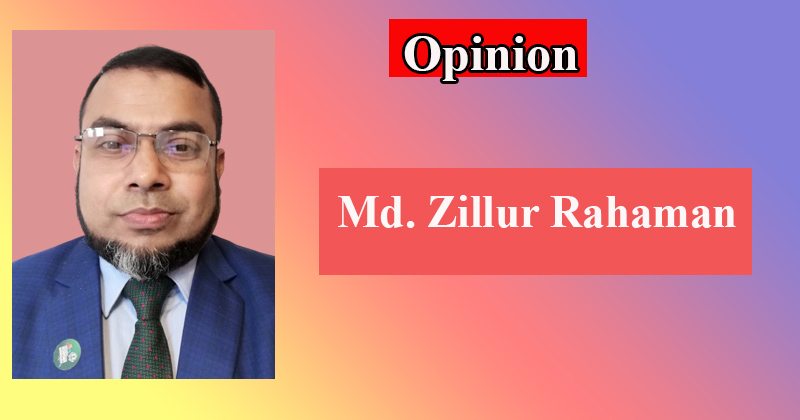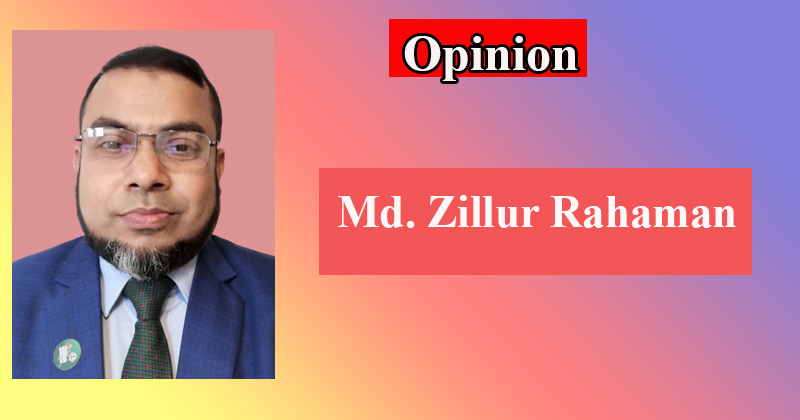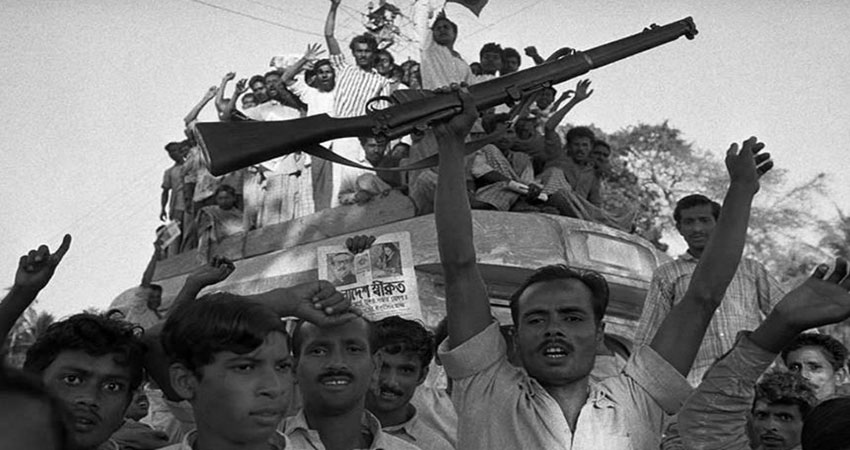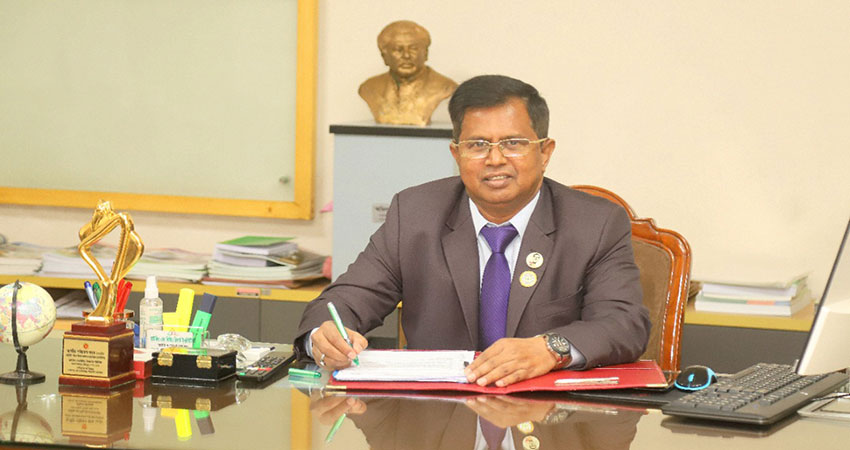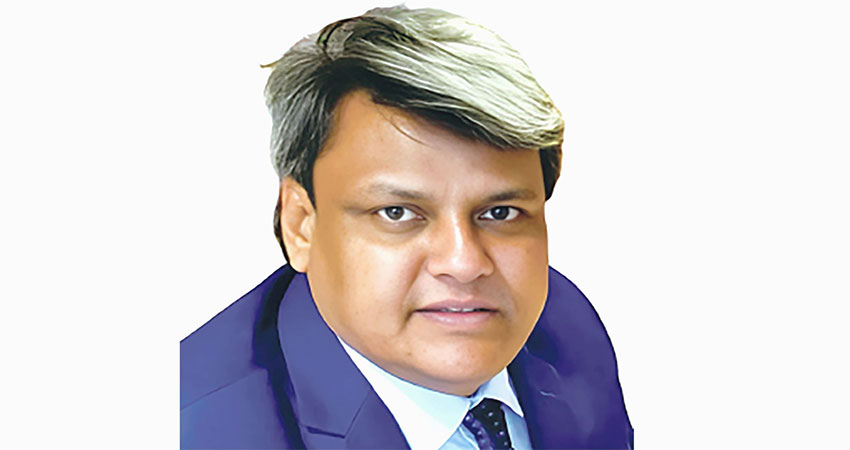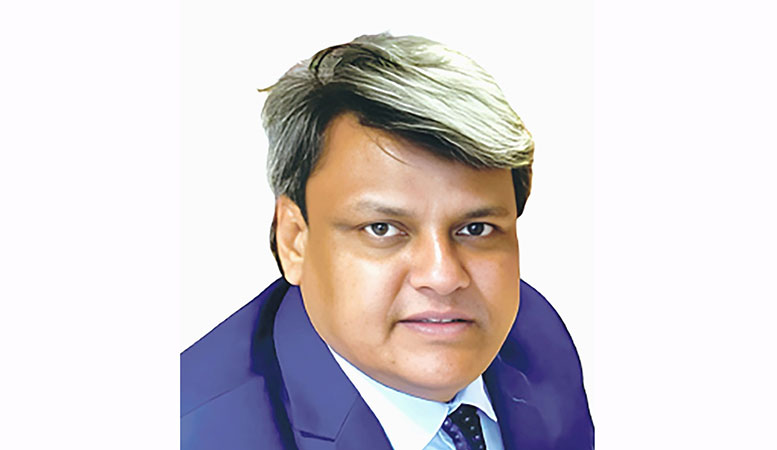The illegal movement of wealth from one country to another is called capital or money laundering in the language of economics. Money laundering from Bangladesh is increasing alarmingly day by day. There are many reasons for money laundering, but it is frustrating because there is no real investment. The trend of sending boys and girls abroad through money laundering has been going on since the 70's. Since then, big bureaucrats, businessmen and political leaders have been involved in this culture of money laundering in various ways.
Recently, the Finance Minister has proposed in the budget of the fiscal year 2022-23 to allow the money smuggled abroad to be displayed in the income tax return without any question. It has been said that if a taxpayer owns any property outside Bangladesh and that property is not shown in the income tax return, s/he will get the opportunity to show it by paying a fixed tax in the financial year 2022-23. In this case, if the immovable property outside Bangladesh is not repatriated to the country at the rate of 15 percent tax on the fair market value of the property, cash, bank deposits, securities and financial instruments, including all movable assets at the rate of 10 percent tax and cash, bank deposits, All movable, including securities and financial instruments, he offered to pay 7 percent tax on the return of the property. This opportunity will be given for one year and it will end on June 30, 2023.
The Finance Minister's announcement drew mixed reactions from the business community, economists, politicians and well-wishers and they view good traders will be discouraged if money smuggled abroad is brought into the country, that's what traders don't want. Although the budget speaks of a tough stance against corruption and good governance, the proposal to launder smuggled black money is not justifiable. This will discourage legitimate taxpayers and legalize money laundering abroad.
The Swiss National Bank (SNB) recently released their annual report. According to the report, in 2021, the amount of money deposited by Bangladeshis in various banks in Switzerland stood at 871.10 million Swiss francs, which is equipment to 8,275 crore in Bangladeshi currency. In the previous year, i.e. in 2020, the amount of this money was Tk. 5,347 crore. The increase is the highest in a year, according to figures from the Swiss Bank's annual report. According to this calculation, the amount of money deposited by Bangladeshis in Swiss Bank has increased by Tk 2,928 crore in one year. In previous years, the amount deposited by Bangladeshis was Tk 4,058 crore in 2014, Tk 4,417 crore in 2015, Tk 5,566 crore in 2016, Tk 4,069 crore in 2017, Tk 5,553 crore in 2018 and Tk. 5,427 in 2019.
Moreover, according to a report by Global Financial Integrity (GFI), a Washington-based research institute in the United States, an average of US$ 753.37 crore is smuggled from Bangladesh through international trade every year. At a market price of Tk 85 per dollar, it amounts to Tk 63,924 crore. The report paints a gloomy picture of how money is smuggled out of 135 emerging and developing countries over the last 10 years (2008-2017) by showing discrepancies in international trade. Bangladesh ranks 33rd among the 135 developing countries in terms of money laundering on an average every year. There are allegations that money laundering is taking place in this country by showing discrepancies in price declaration in import and export activities. Lately, some such incidents have also been uncovered. According to the report, Bangladesh has an average of 17.95 percent or about 18 per cent discrepancy in the price declaration of all imports and exports with Bangladesh.
The country's businessmen, various professionals and politicians smuggle crores of money in different ways. Again, foreigners are taking crores of money from Bangladesh. Bangladeshis are laundering several times more money than foreigners are laundering. Although most foreigners smuggle money in Bangladesh due to the complexity of hiring foreigners, Bangladeshis are planning to smuggle money. Citizens of Bangladesh are smuggling money for two reasons. First, those who are not able to enjoy undisclosed income or black money in the country. They are investing in business in different countries as well as building second homes in different countries. Second, Bangladeshis are also smuggling money due to political and administrative weaknesses and in both these sectors, black money is being smuggled through irregularities and corruption.
Conscious and rich citizens of the country think that Bangladesh is not a safe place for their children. Besides, there is an instability among everyone that the future of boys and girls in Bangladesh is not good. For this reason, businessmen, political leaders and bureaucrats think it is normal to send children abroad, to teach abroad, to allow them to work abroad as well as to smuggle money abroad.
A study by the Bangladesh Institute of Bank Management (BIBM) found that Bangladeshi businessmen are living in buildings in various countries, including Malaysia, Canada and Singapore, with bank loans. The money of the customers of the bank is being smuggled abroad by various means and they are building a second home there.
A survey of 125 loan defaulters in Bangladesh, published in 2010 on bank defaulters, found that the majority of those owners had smuggled a large portion of their bank loans abroad. Prashant Kumar (P. K.) Haldar, who fled abroad two years ago, was arrested on 14 May 2022 in West Bengal, India. The ACC has 36 cases against him for embezzling and smuggling Tk 3,500 crore from four companies, including Finance and Investment Limited and People's Leasing in Bangladesh. PK Haldar, a former managing director of a bank and another financial institution in Dhaka, had been on the run for a long time after allegations of irregularities amounting to around Tk 6,500 crore surfaced. The Enforcement Directorate (ED) of India's Central Intelligence Agency (CIA) has found assets worth Tk 300 crore in 88 bank accounts of PK Haldar and his associates in different parts of India, including West Bengal. The company also found seven flats belonging to PK Haldar in Malaysia. Only P. K. Haldar is not alone, many like him are living a comfortable life by buying a famous flat in Begum Para, Canada, Malaysia with a loan from a bank.
According to the GFI report, money laundering has increased in Bangladesh since 2008 due to discrepancies in price announcements. In 2015, a maximum of US$1,151.30 crore went abroad and in 2008, the amount was US$ 528 million. In addition, US$ 4900 million in 2009, US$ 7090 million in 2010, US$ 8000 million in 2011, US$ 7120 million in 2012 and US$ 8820 million in 2013 went abroad.
The amount of money laundered in 2013 is equal to the amount allocated for the development of 7 important sectors of Bangladesh in 2015-16. According to GFI, a US-based international organization, the amount of money smuggled from Bangladesh abroad in 10 years is one and a half times the country's total national budget. On an average, Tk 63,924 crore has been smuggled every year.
Money laundering is mainly due to the wrong policies of the government. In a country where economic activity is almost stagnant, where investment is extremely slow, the surplus money of moneylenders is smuggled abroad. Where there is political uncertainty on the one hand, lack of physical infrastructure on the other hand or inadequate physical infrastructure, money laundering takes place. Traffickers include smugglers and money launderers, garment owners, industrialists, corrupt bureaucrats and politicians. According to economists, if there is no good governance, money will be smuggled. Those involved in money laundering are high-ranking members of society. There is no incentive for them to hold money in the country. First of all, the country has to do better.
There is no doubt that the country is making commendable progress now and 8-9 percent 'GDP' growth is being achieved. A large group has become middle class. There is no lack of comfort. It goes without saying that there is no middle class without cars. Per capita income has increased considerably. Poverty has been reduced. But it turns out that whoever owns the money, whoever is influential, whoever is studying a little, who is a knowledgeable scientist, no one wants to stay in Bangladesh.
If the money earned through illicit means is not smuggled abroad, it plays a role in the economy of the country in one way or another, but whenever this money is smuggled abroad, it does not play any role in the economy of the country but acts as an omen. The wheel of the country's economy gradually came to a standstill and in the long run it was an ominous sign for the foundation of the country's economy. It is the responsibility of the government to prevent money laundering through appropriate measures.
Writer: Banker and Columnist
The Daily Citizentimes/OH/MY

